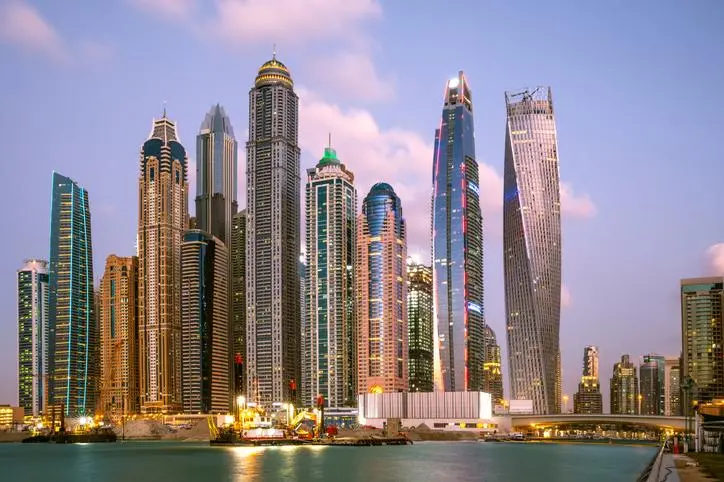PHOTO
House prices in Dubai and Abu Dhabi are expected to see marginal declines this year, but to a lesser extent compared to what we saw in the previous years, JLL said.
“Almost between 1 to 5 percent decline in sale prices in Dubai (in 2020),” Dana Salbak, Head of Research, MENA at JLL told Zawya on the sidelines of JLL’s annual real estate event, adding that for Abu Dhabi, the decline could be about 1 to 2 percent, as “supply is a bit more controlled.”
Salbak said that the forecasts are “purely based on sentiment ahead of Expo 2020.”
Sale prices for apartments in Dubai declined about 5 percent in 2019, while rental rates fell by around 8 percent, JLL said in its 2019 end of year review report.
“However what we are seeing is that on a quarterly basis, this rate of decline is beginning to slow down, rental rates and sales prices, not just in Dubai but in Abu Dhabi as well, have registered between 1 to 2 percent (decline) on a quarter on quarter basis (Q4 2019 vs Q3 2019), which leads us to believe that the residential market is reaching the bottom of the cycle,” Salbak said.
More than 35,000 residential units were delivered in Dubai in 2019, the highest ever delivered in a year, the report said.
“In Dubai there is an additional 63,000 residential units expected to come into the market,” Salbak said, noting that a 50 percent materialization rate is assumed.”
By end of 2020, approximately 11,400 units are scheduled to enter the Abu Dhabi market, the JLL report said.
According to Thierry Delvaux, CEO of JLL MEA, it is by building resilience that cities can react to shorter cycles, to volatilities, to shocks, and to turmoils that we have been facing and we will be facing over the next decades.
“You build resilience by increasing quality of life in the city, by introducing sustainability as part of your key strategy, by innovating, by bringing governance and transparency. This is what I have seen happening in Dubai and the UAE last year, the start of that process,” Delvaux said.
Dubai launched the Higher Real Estate Planning Committee in September 2019, to manage the balance between supply and demand, maintain the diversity of projects and ensure that developments add real value to the national economy.
The emirate saw an instant impact following the launch of the new real estate committee. Dubai Land Department (DLD) said in September that real estate transactions increased by 134 per cent.
Expo 2020 and the residential market
“At best we believe Expo will stabilise the (residential) market,” Salbak said
Dubai Expo 2020 is set to welcome 190 participating countries with an estimated 25 million visitors from across the world.
The largest event ever staged in the Arab world aspires to create a meaningful legacy that will benefit generations to come, both locally and globally, spanning everything from innovations and architecture to friendships and business opportunities.
“The residential sector will likely remain exactly where it is over the next 12 months, some marginal declines (are expected) according to specific areas across Dubai and Abu Dhabi, but overall not much is going to change,” Salbak added.
(Reporting by Gerard Aoun; editing by Seban Scaria)
Disclaimer: This article is provided for informational purposes only. The content does not provide tax, legal or investment advice or opinion regarding the suitability, value or profitability of any particular security, portfolio or investment strategy. Read our full disclaimer policy here.
© ZAWYA 2020





















